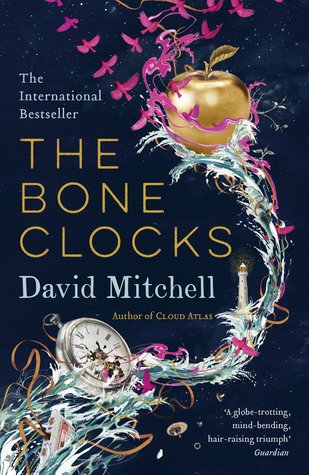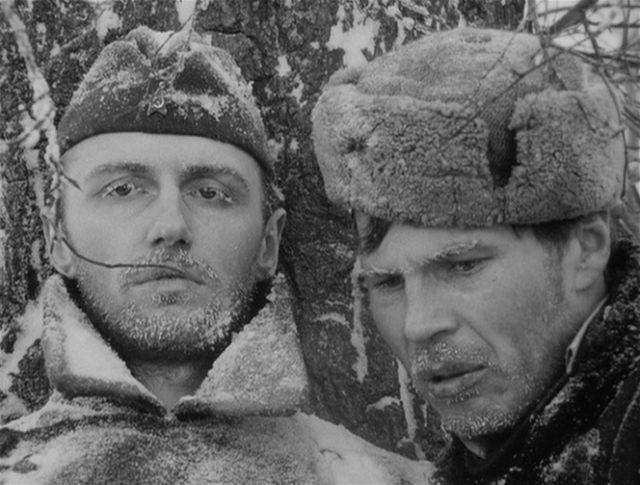
Two characters are faced with a choice between self-preservation and self-sacrifice — or, more fundamentally still, between good and evil. One of them takes the former path, the other the latter. Both must then deal with the consequences of their respective decisions. Boiled down to its essence, it’s a tale simple enough to be a parable or a fable, but it’s also the basis for Larisa Shepitko’s powerful, thought-provoking 1977 film The Ascent.
The characters in question are Sotnikov (Boris Plotnikov) and Rybak (Vladimir Gostyukhin), members of a group of Soviet partisans battling the Germans in World War II. While out obtaining food, the two men are fired upon by a small band of Germans, and the already ill Sotnikov is wounded. They manage to make their way to a nearby farmhouse, but it’s not long before they’re tracked down and apprehended along with Demchika (Lyudmila Polyakova), the owner of the house and the mother of three young children who are left alone there as a result.
(Major spoilers ahead)
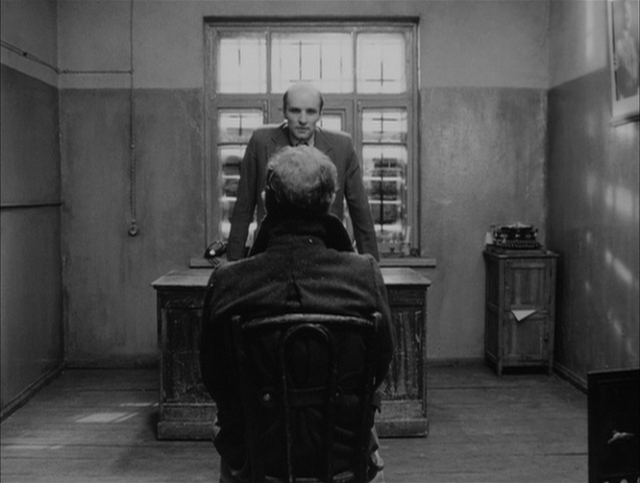
After their capture, the men are interrogated by a police inspector named Portnov (Anatoly Solonitsyn), a Russian working for the Germans, in connection with the shooting of a German soldier. He wants them to give him information about the partisans. Sotnikov demands that he release Demchika but refuses to reveal anything, even after being branded with a hot iron; Rybak, on the other hand, talks quite freely (if not entirely honestly), though he expresses disgust when offered the opportunity to join the police and “serve Greater Germany.” As more people are arrested (including a young Jewish girl being questioned about who hid her), Sotnikov decides to take responsibility for the shooting in hopes of saving the others — to no avail. Only Rybak, who changes his mind in a panic and accepts a job with the police, is saved from hanging, but there’s a heavy price to pay for protecting his own skin.
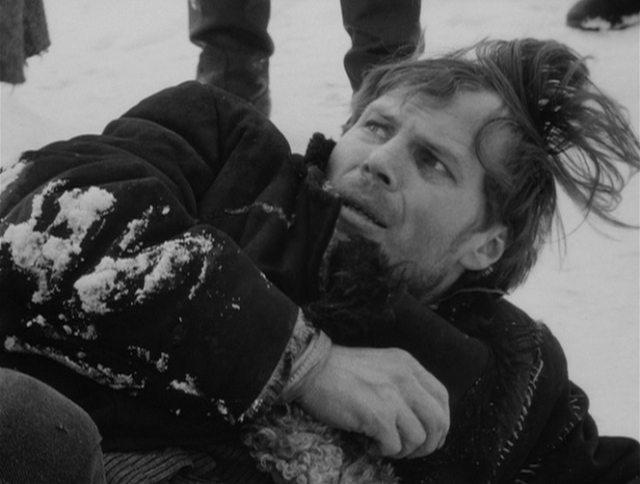
Of course, watching the film, we all like to think that we would make the same decision as Sotnikov, that we would be willing to give up our lives, if need be, rather than betraying others — but we worry that we would be more like Rybak. It’s so easy to rationalize the selfish decision, as he does (insisting that he and Sotnikov need to survive and fight, claiming that everyone already knows the information he’s revealed, blaming Sotnikov for getting them into this mess), just as it’s easy for him to condemn an older man (Sergei Yakovlev) for aiding the Germans under threat before he finds himself in a similar position.
Then there’s the fear factor. Everyone in this world seems constantly on edge, and with good reason. At any given moment, they could find themselves in a life or death situation, as illustrated with Demchika and with Rybak’s girlfriend, whose family’s house he finds burned to the ground. (“Maybe they had time to get out,” Sotnikov suggests while Rybak gazes at the laundry still hanging on the clothesline.) It’s no surprise that they sometimes snap under pressure, acting in ways that they never would under normal circumstances. (Portnov says as much when he threatens Sotnikov with torture: “You’ll discover something in yourself that — that you’d never imagine. Where will your perseverance go? And that fanatic glitter in your eyes? It’ll all be taken over by fear.” No doubt he’s speaking from personal experience.) The same Rybak who heroically carries an injured Sotnikov through the snowy woods is screaming, “Don’t shoot!” a few minutes later when he’s staring down the barrel of a machine gun, thereby exposing himself and his comrade.
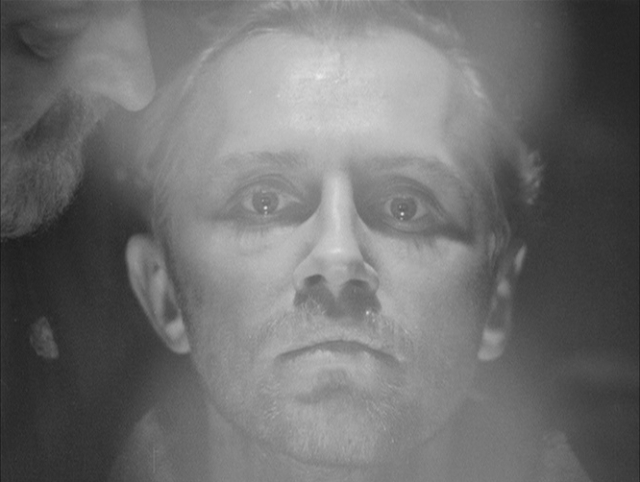
We must wonder, too, if we would accept certain death as bravely as Sotnikov does. Early on, after he gets shot and appears to be on the verge of slipping away, he says, “The main thing is to get used to the thought: Is this to be the end?” By the time death really comes for him, he has gotten used to it. The knowledge that he can die with a clear conscience (though he does ask Demchika’s forgiveness for inadvertently dragging her into this) seems to bring him a kind of beatific level of inner peace, to the point where he almost glows. He becomes a Christlike figure, in sharp contrast to the all-too-human — and, perhaps, more relatable — Rybak. The other victims don’t all go quite as quietly, but it’s clear that whatever horrors death holds, it may well be preferable to the horrors of living with guilt and shame — a fact that Rybak quickly discovers.
The Ascent is a story of selflessness and selfishness, of courage and fear, of right and wrong, of good and evil, and none of that is as simple as it may appear at first glance.

This post is part of the Inspirational Heroes Blogathon, hosted by The Midnite Drive-In and Hamlette’s Soliloquy. Click the banner above to see all of the other great posts.
Advertisements Share this:

